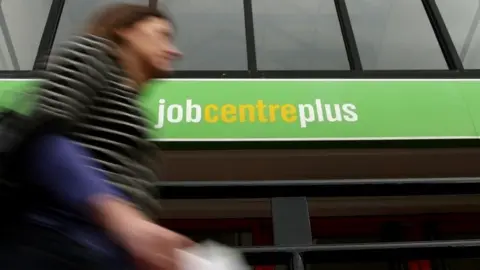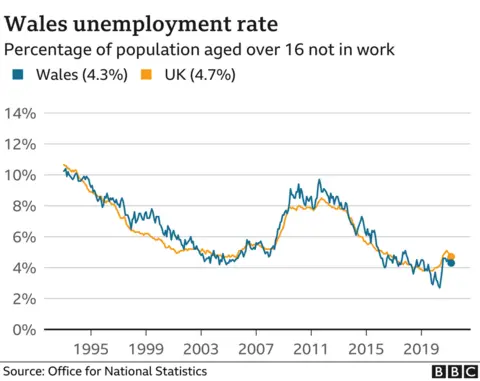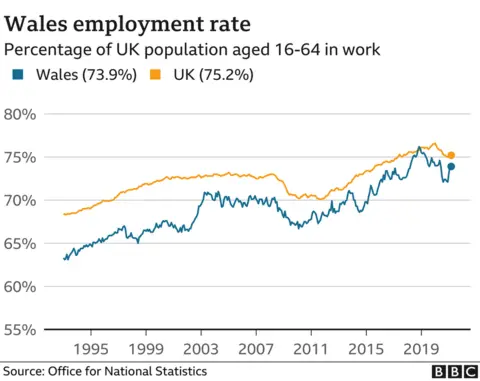Jobs: Wales' unemployment rate falls to 4.3%
 PA
PAUnemployment in Wales has fallen slightly in the three months to April.
There are now 66,000 people unemployed in Wales, which is 4.3% of those over 16 years old. This is lower than the UK figure of 4.7%.
Between February and April there were 28,000 more people working in Wales compared with the previous three months.
But there were still 19,000 more people unemployed than a year earlier - at the start of the pandemic.
There has also been a large fall in the number of people who are not working and not able to work.


In the three months to April, there were 32,000 fewer people in this category in Wales than three months earlier.
Across the UK, job vacancies are rising at the highest rate since before the pandemic.
Between March and May, as the economy started to open up, there were 24% more job vacancies than three months earlier.


Across the UK, wages are also growing at a rate of 5.6%.
There has been an increase in the number of people employed in the public sector, especially in the health service and UK central government.
Welsh government Economy Minister Vaughan Gething said the statistics for Wales were "encouraging, showing more people are now in work, with the number of people in work the highest it's been since March last year, while unemployment in Wales remains below the UK average".
"However, we know there is still uncertainty facing the Welsh economy and labour market, due to the continuing impact of Covid and the UK's departure from the EU," he said.


The jobs market in Wales is beginning to recover, tentatively, and it is clear employers have started to take people on as restrictions eased.
Not surprisingly across the UK, tourism, food and drink businesses have been especially busy.
This set of figures tells us more than just the levels of unemployment in Wales. It is really significant that since January, 32,000 people who were not able to work for whatever reason, are now able to.
The proportion of people who cannot be employed because they are ill or are caring for someone else is often forgotten.
Nor should we forget that in Wales, there are still 19,000 more unemployed than between February and April 2020 when the pandemic hit.
From 1 July, employers with staff on furlough will have to pay more towards keeping them on that scheme as furlough is scheduled to stop altogether at the end of September.
We cannot yet know the impact of that, or whether employers will take staff back into work or tell them there is no longer a job for them to return to.
